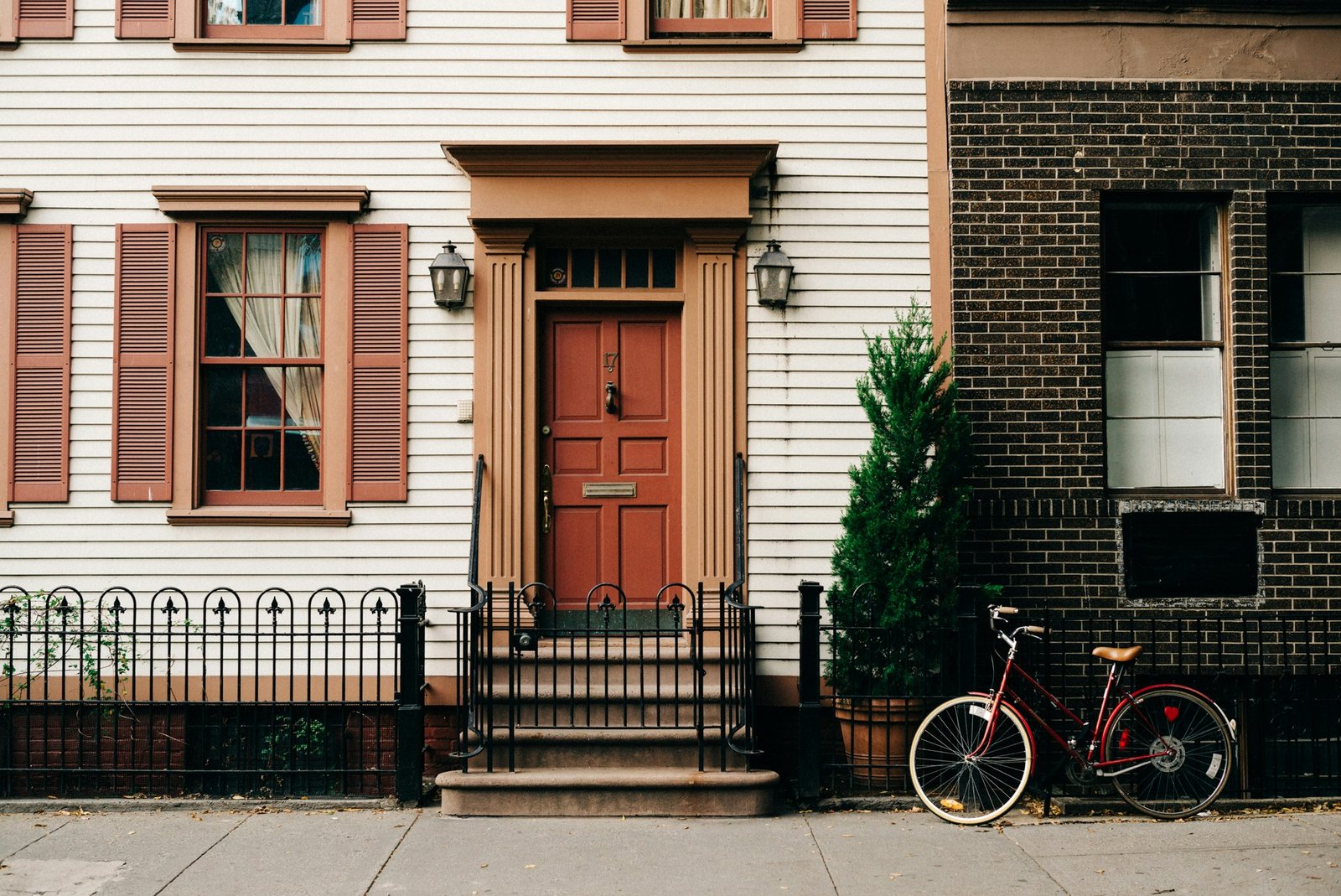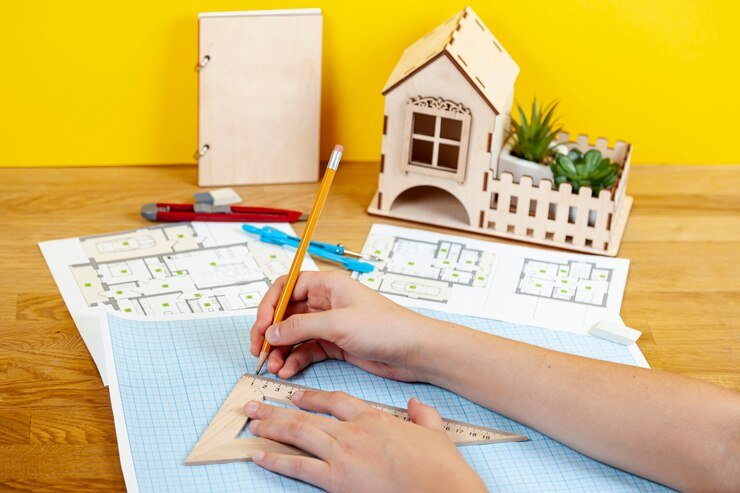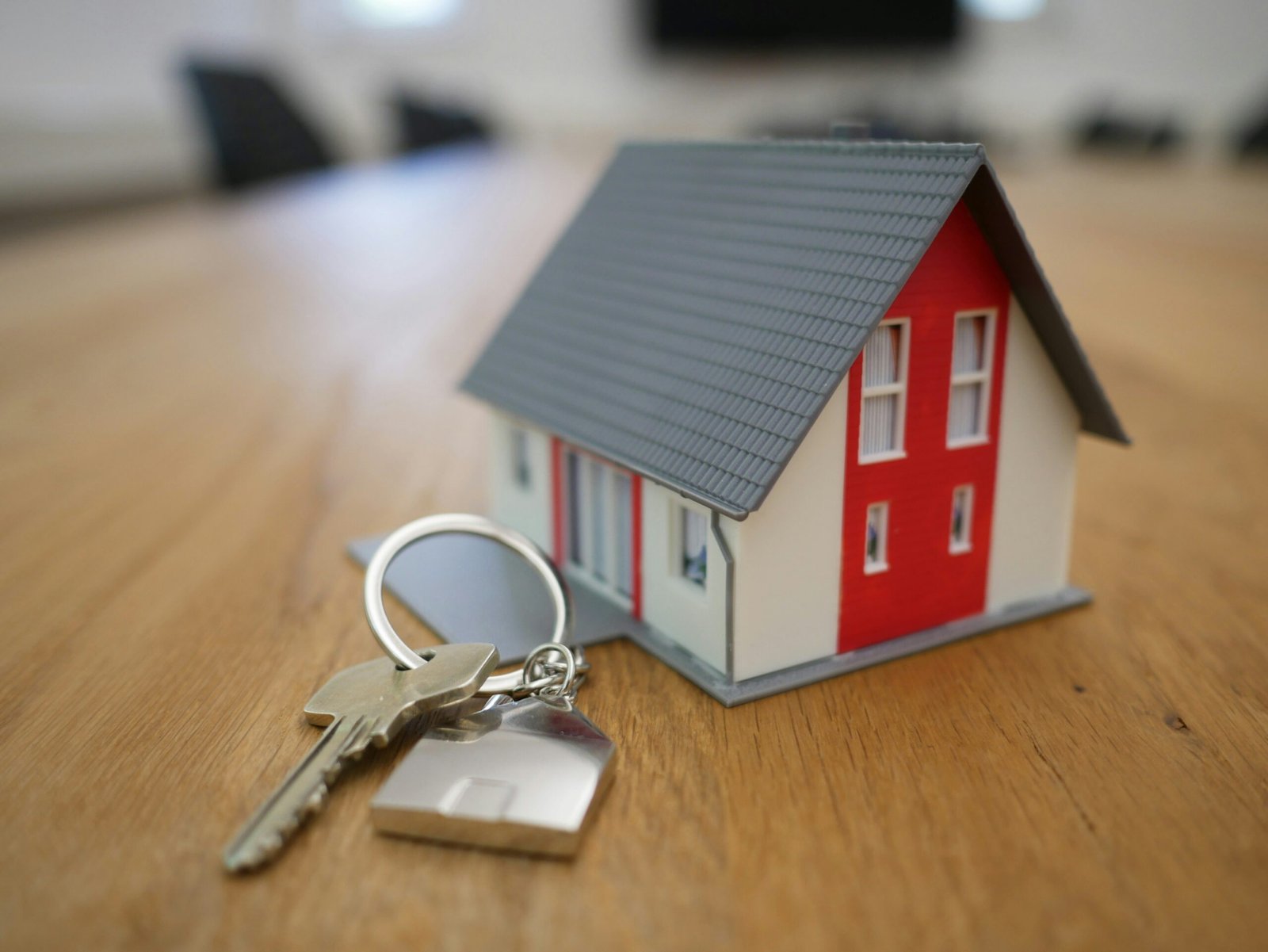Introduction to the New York City Real Estate Market
The New York City real estate market is renowned for its unique characteristics and dynamic nature. As one of the most competitive markets in the world, the demand for homes is consistently high, driven by the city’s cultural, economic, and social appeal. New York City, often called NYC, is a mosaic of diverse neighborhoods with distinct personalities, amenities, and price points. From the historic brownstones of Brooklyn to the high-rise condominiums in Manhattan, the city’s real estate offerings cater to various preferences and budgets.
One of the defining features of the NYC real estate market is its high demand. With a population exceeding 8 million residents and a steady influx of newcomers, the competition for available properties is intense. This demand is further amplified by the city’s global reputation as a financial, cultural, and educational hub. Consequently, home prices in New York City are among the highest in the United States, reflecting the premium buyers are willing to pay for living in such a vibrant environment.
The diversity of neighborhoods in NYC significantly influences home prices. Areas like Manhattan’s Upper East Side or Tribeca are synonymous with luxury and command premium prices. In contrast, neighborhoods in the outer boroughs, such as Queens and the Bronx, offer more affordable options while still providing access to the city’s amenities. Factors such as proximity to public transportation, quality of local schools, and neighborhood safety also play crucial roles in determining property values.
Moreover, the NYC real estate market is influenced by broader economic conditions, including interest rates, employment rates, and the economy’s overall health. The interplay of these factors creates a complex and ever-evolving market landscape that prospective homebuyers must navigate. Understanding these dynamics is essential for making informed decisions and purchasing a home in New York City.
Understanding the Different Boroughs
New York City comprises five distinct boroughs, each with its unique atmosphere, lifestyle, and housing market. Understanding these differences is crucial when considering where to buy a home in this diverse metropolis.
Manhattan is the most densely populated and arguably the most iconic borough. Its towering skyscrapers, bustling streets, and cultural landmarks characterize it. The lifestyle in Manhattan is fast-paced, catering to those who thrive in a vibrant urban environment. Housing prices here are the highest in New York City, with the median home price often exceeding $1 million. Neighborhoods like the Upper East Side, Tribeca, and SoHo are mainly known for their luxury apartments and historic brownstones.
Brooklyn has become a cultural and artistic hub over the past few decades. Its atmosphere varies significantly from one neighborhood to another, from the hipster haven of Williamsburg to the family-friendly streets of Park Slope. The median home price in Brooklyn is generally lower than in Manhattan, though areas like Brooklyn Heights and DUMBO can still command high prices. Overall, Brooklyn offers a blend of urban living with a slightly more relaxed vibe than Manhattan’s.
Queens is the most ethnically diverse borough and offers many housing options. From the suburban feel of Forest Hills to the bustling streets of Long Island City, Queens caters to various lifestyles. The median home price here is more affordable than in Manhattan and Brooklyn, making it an attractive option for first-time buyers. Queens is also known for its excellent public schools and green spaces, which appeal to families.
The Bronx has a rich cultural history and is home to landmarks like Yankee Stadium and the Bronx Zoo. The borough is experiencing a resurgence, with new developments and revitalized neighborhoods. The median home price in The Bronx is among the lowest in New York City, making it a viable option for those on a tighter budget. Areas like Riverdale offer more suburban settings, while neighborhoods like Hunts Point are more urban.
Staten Island is the most suburban of the five boroughs, known for its parks and waterfront views. It offers a quieter lifestyle, which can appeal to those looking to escape the hustle and bustle of the city. The median home price in Staten Island is relatively affordable, and the borough provides a range of housing options, from single-family homes to townhouses. The Staten Island Ferry offers convenient access to Manhattan, balancing suburban tranquility with urban accessibility.
Each borough offers distinct advantages and challenges, so potential buyers must consider their priorities and budgets when deciding where to buy a home in New York City.
Types of Homes Available
New York City’s real estate market offers various property types, each catering to different buyer preferences and financial capacities. Understanding the distinctions between these options is crucial for making an informed decision when buying a home in the city.
Condos: Condominiums, commonly known as condos, are individual units within a larger building or complex. Buyers own their units outright and share ownership of common areas with other residents. Condos are typically newer constructions with modern amenities like gyms, pools, and doormen. They provide flexibility in terms of subletting and selling. However, they often come with higher monthly maintenance fees. Regarding pricing, condos in New York City can range from about $500,000 for a modest unit to several million dollars for luxury properties in prime locations.
Co-ops: Cooperative apartments, or co-ops, differ significantly from condos. When purchasing a co-op, buyers acquire shares in a corporation that owns the building rather than owning the unit itself. This arrangement requires prospective buyers to pass a rigorous board approval process. Co-ops generally offer lower purchase prices than condos, but they also have strict subletting policies and higher monthly maintenance fees. The average price for a co-op in New York City varies from approximately $300,000 to over $1 million, depending on the neighborhood and building amenities.
Townhouses: Townhouses provide a more traditional, single-family living experience within the urban environment. These multi-story properties often feature private entrances, backyards, and more excellent square footage. Townhouses offer more privacy and autonomy but are responsible for maintaining the property. The price for townhouses in New York City typically starts at around $1.5 million and can soar to tens of millions for those in prestigious locations.
Single-Family Homes: Single-family homes are standalone properties that offer complete ownership of the building and the land it sits on. These homes are rarer in the dense urban landscape of New York City but can be found in outer boroughs such as Staten Island and certain parts of Queens and Brooklyn. They provide maximum privacy and control over the property. The price range for single-family homes varies widely, from around $500,000 in less central areas to several million dollars in more desirable neighborhoods.
By understanding the nuances of these property types, prospective buyers can better navigate the complexities of the New York City real estate market and find a home that best suits their needs and financial situation.
Steps to Buying a Home in NYC
Buying a home in New York City is a multifaceted process that requires careful planning and execution. The first step is obtaining pre-approval for a mortgage. This essential step will help you understand your budget and show sellers you are a serious buyer. To get pre-approved, contact a lender who will assess your financial situation, including income, credit score, and debt-to-income ratio, and provide you with a loan amount you will likely qualify for.
Once pre-approved, the next step is finding a real estate agent specializing in the New York City market. A knowledgeable agent can provide insight into neighborhood trends, pricing, and available properties. They will also guide you through NYC real estate transactions’ complex legal and procedural landscape.
You can begin your property search with pre-approval and a real estate agent secured. Utilize online platforms, attend open houses, and consider your long-term needs and preferences. Location is crucial in New York City, so factors such as proximity to work, schools, public transportation, and amenities should be evaluated.
When you find a property that meets your criteria, it’s time to make an offer. Your real estate agent will help you determine a competitive offer price based on comparable sales in the area. Be prepared for negotiations; sellers may counter your offer, and you might need to adjust your terms to reach an agreement.
After your offer is accepted, the closing process begins. This stage involves several steps, including a home inspection, finalizing your mortgage, and conducting a title search. The closing is the final step, where you sign the necessary documents and pay closing costs, including attorney fees, title insurance, and taxes. Once completed, you will receive the keys to your new home.
Throughout this process, practical tips and common pitfalls to avoid include not overextending your budget, being prepared for additional costs such as maintenance and taxes, and thoroughly reviewing all documents before signing. By following these steps and staying informed, you can successfully navigate the complexities of buying a home in New York City.
Financing Your Home Purchase
Financing a home purchase in New York City involves navigating various options tailored to meet diverse buyer needs. Understanding these options is crucial for making informed decisions. One of the primary financing methods is through mortgages, which come in several forms. Fixed-rate mortgages offer the stability of a consistent interest rate throughout the loan term, typically ranging from 15 to 30 years. This can be advantageous for long-term planning. On the other hand, adjustable-rate mortgages (ARMs) start with a lower interest rate that adjusts periodically based on market conditions. While ARMs may initially be more affordable, they carry the risk of increasing rates over time.
Down payment requirements also play a significant role in the home-buying process. Generally, conventional loans require a down payment of at least 20% of the home’s purchase price. However, options such as Federal Housing Administration (FHA) loans require as little as 3.5%, making them accessible to first-time buyers or those with limited funds. It’s important to note that lower down payments may result in higher monthly payments and private mortgage insurance (PMI) costs.
Interest rates are a pivotal factor in determining the overall cost of a mortgage. Rates can vary significantly based on the lender, loan type, and the borrower’s creditworthiness. Therefore, shopping around for competitive rates and understanding the terms of each offer is essential. Improving credit scores can lead to more favorable interest rates. This can be achieved by paying off existing debts, avoiding new credit inquiries, and ensuring timely bill payments.
Moreover, New York City offers various financial assistance programs aimed at helping potential homeowners. Programs like the HomeFirst Down Payment Assistance Program provide eligible buyers with grants to cover down payments and closing costs. Additionally, the State of New York Mortgage Agency (SONYMA) offers loans with low interest rates and minimal down payment requirements for qualifying individuals.
By understanding the full spectrum of financing options, down payment requirements, and available assistance programs, prospective homebuyers in New York City can make well-informed decisions that align with their financial circumstances and homeownership goals.
Understanding Home Prices and Market Trends
Understanding the intricacies of home prices and market trends in New York City is essential for any prospective homebuyer. The real estate market in NYC is known for its dynamic nature, characterized by frequent price fluctuations and varying trends across different boroughs and neighborhoods. As of the latest data, the average home price in New York City is approximately $750,000, but this figure can vary significantly based on location and property type.
Factors driving these price variations include demand and supply dynamics, economic conditions, and changes in interest rates. The market has seen a notable price uptick over the past year, partly driven by a post-pandemic rebound and a surge in demand for residential properties. For instance, neighborhoods like Manhattan and Brooklyn have experienced an increase in median home prices, with Manhattan averaging $1.1 million and Brooklyn around $950,000.
Analyzing recent home sales offers a concrete understanding of the market. For example, a two-bedroom apartment in the Upper West Side recently sold for $1.3 million, reflecting the area’s high demand and limited inventory. Conversely, a one-bedroom condo in Queens went for $650,000, showcasing the more affordable options outside the Manhattan and Brooklyn hotspots.
Price trends also reveal interesting insights. The luxury market, characterized by high-end properties, has shown resilience and even growth, whereas more affordable housing segments have experienced moderate price increases. Projections for the future suggest a steady rise in home prices, albeit slower, as the market stabilizes post-pandemic and adjusts to economic shifts.
In summary, understanding home prices and market trends in New York City requires a granular analysis of various influencing factors and real-world examples. Potential buyers should stay informed and consider these dynamics when making investment decisions, ensuring they navigate the complexities of the NYC real estate market effectively.
Legal Considerations and Paperwork
Purchasing a home in New York City involves navigating a complex web of legal considerations and paperwork. Understanding these legal aspects is crucial to ensure a smooth transaction. One of the first steps is hiring a qualified real estate attorney, who will play a pivotal role throughout home-buying. Attorneys are indispensable in NYC real estate transactions, as they help review and draft contracts, negotiate terms, and ensure compliance with local laws.
The initial agreement, known as the contract of sale, is a critical document that outlines the terms and conditions of the purchase. The buyer and seller must agree on this contract, including details such as the purchase price, closing date, and any contingencies. Your attorney will meticulously review this contract to safeguard your interests and ensure no unfavorable clauses.
Another essential legal consideration is property disclosures. In New York City, sellers must disclose any known defects or issues with the property. This includes information about the property’s condition, legal disputes, and potential environmental hazards. Buyers should carefully review these disclosures to avoid unexpected problems after the purchase.
Home inspections are also crucial to the legal process. Although not legally mandated, it is highly recommended that a thorough inspection be conducted to identify any hidden issues that could affect the property’s value or safety. The inspection report can be a basis for negotiating repairs or price adjustments with the seller.
Title insurance is another essential element in the home-buying process. This insurance protects buyers from potential legal claims against the property’s title. Before closing, a title search ensures the property is free from liens, encumbrances, or legal disputes. Title insurance provides peace of mind by covering any future legal costs or claims that may arise.
In summary, understanding the legal considerations and paperwork involved in buying a home in New York City is essential for a successful transaction. Buyers can confidently navigate the complexities of NYC’s real estate market by engaging a competent real estate attorney, thoroughly reviewing property disclosures, conducting inspections, and securing title insurance.
Final Tips and Advice for Prospective Buyers
Buying a home in New York City is a significant milestone that requires careful planning and informed decision-making. One key strategy for prospective buyers is mastering the art of negotiation. Effective negotiating tactics can potentially save you a substantial amount of money. Understanding the current market conditions, comparable property prices, and the seller’s situation is crucial. This knowledge will empower you to make a compelling offer without overstepping your budget.
Another critical aspect of the home-buying process is the home inspection. Never underestimate the importance of a thorough inspection. It can reveal hidden issues that might not be apparent during initial viewings, such as structural defects or plumbing or electrical problems. A comprehensive inspection report will give you a clearer picture of the property’s condition and help you negotiate repairs or price adjustments with the seller.
Choosing the right neighborhood is equally important. New York City is a vast metropolis with diverse neighborhoods offering unique characteristics and amenities. Consider factors such as proximity to work, access to public transportation, school quality, and neighborhood safety. Visiting potential neighborhoods at different times can also give you a better sense of the area’s vibe and livability.
Making a competitive offer is essential in a city where the real estate market can be fiercely competitive. Work with a knowledgeable real estate agent who can guide you through the process and help you craft an offer that stands out. Sometimes, including a personal letter to the seller can make a difference, especially if multiple offers are on the table. Highlighting your genuine interest and connection to the property can make your offer more appealing.
To provide additional insights, consider the experiences of recent buyers. For instance, Jane, who recently purchased a condo in Brooklyn, emphasized the importance of being patient and persistent. “The market is fast-paced, but taking the time to find the right home made all the difference,” she said. Similarly, John, who bought a townhouse in Queens, highlighted the value of having a trustworthy real estate agent. “My agent’s expertise and local knowledge were invaluable in navigating the complexities of the New York City market,” he remarked.
In conclusion, buying a home in New York City is a complex but rewarding endeavor. With the right strategies, diligent research, and professional guidance, you can successfully navigate the process and find a home that meets your needs and aspirations.
How to Start a Notary Business
Mastering Facebook Login: A Comprehensive Guide
Louisiana Tech vs New Mexico State: Prediction and Analysis
How to Turn Off Auto Start-Stop Permanently
How to Make Money Online: A Comprehensive Guide
Unlocking Opportunities: The Importance of Education and Training Jobs









